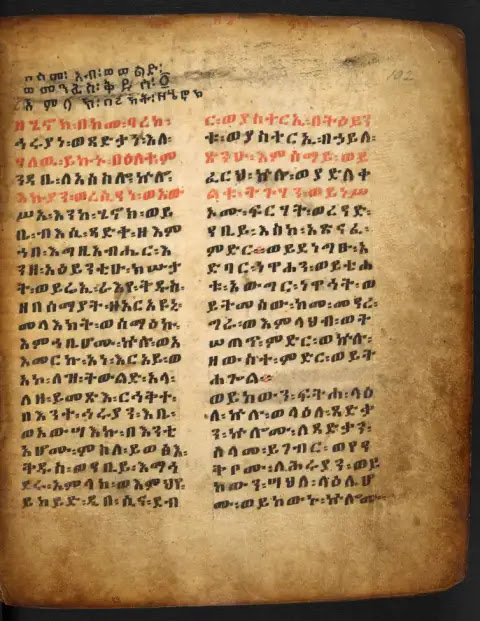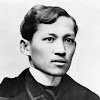The Book of Enoch is an ancient Jewish religious text that has captivated the imagination of scholars and religious groups around the world. Its mysterious origins, intriguing contents, and profound influence on ancient Jewish and Christian thought have made it an object of intense study and debate. In this article, we will explore 40 intriguing facts about the Book of Enoch, its history, contents, and influence.
40 Intriguing Facts About the Enigmatic Book of Enoch: Its History, Contents, and Influence
- The Book of Enoch is an ancient Jewish religious text that dates back to the Second Temple period, around 200 BCE to 70 CE.
- The book is attributed to Enoch, a figure from the Hebrew Bible who was said to have been taken up to heaven by God and shown many secrets.
- The Book of Enoch is not considered part of the Jewish or Christian canons, but it is regarded as an important work by some religious groups, including Ethiopian Orthodox Christians.
- The Book of Enoch is composed of five sections, each referred to as a "book."
- The first book of Enoch describes Enoch's visions of the heavens and the angels, and his interactions with the fallen angels or "Watchers."
- The second book of Enoch describes Enoch's journey through the heavens and his conversations with God.
- The third book of Enoch is also known as the "Book of the Palaces" and describes Enoch's vision of the celestial palaces and the angels who inhabit them.
- The fourth book of Enoch is also known as the "Parables" and contains a series of allegorical stories and visions.
- The fifth book of Enoch is also known as the "Epistle of Enoch" and contains a letter from Enoch to his sons, exhorting them to righteousness.
- The Book of Enoch was known to early Christian writers, including Tertullian and Origen, and may have influenced some of the beliefs and practices of the early Church.
- The Book of Enoch was lost for centuries until it was rediscovered in the late 18th century, when several copies were found among the Ethiopian Orthodox Church's scriptures.
- The Book of Enoch is considered canonical by the Ethiopian Orthodox Church and is included in their Bible.
- The Book of Enoch is not considered scripture by most other Christian denominations or by Judaism.
- The Book of Enoch contains several references to the Messiah, and some of these references are quoted in the New Testament.
- The Book of Enoch also contains a prophecy of a great flood, similar to the story of Noah's Ark in the Bible.
- The Book of Enoch describes the fallen angels or "Watchers" as a group of angels who descended to earth and took human wives, producing a race of giants.
- The Book of Enoch contains detailed descriptions of the heavenly realms and the hierarchy of angels.
- The Book of Enoch includes a calendar of the heavenly bodies and the festivals that should be celebrated on each day.
- The Book of Enoch describes a complex system of angelic magic and divination.
- The Book of Enoch is written in several different languages, including Hebrew, Aramaic, and Ge'ez.
- The Book of Enoch has been translated into many different languages, including English, German, French, and Russian.
- The Book of Enoch is a major source of information about ancient Jewish and Christian cosmology and angelology.
- The Book of Enoch influenced many later works of Jewish and Christian literature, including the Kabbalah and the writings of the Church Fathers.
- The Book of Enoch contains several passages that have been interpreted as references to the resurrection of the dead.
- The Book of Enoch contains a vision of the apocalypse, with a final battle between the forces of good and evil.
- The Book of Enoch describes the fate of the righteous and the wicked after death.
- The Book of Enoch includes a vision of a tree, which is sometimes interpreted as a symbol of the Tree of Life in the Garden of Eden.
- The Book of Enoch contains passages that describe the punishments of the fallen angels and the giants they produced.
- The Book of Enoch describes the fate of the righteous and the wicked after death.
- The Book of Enoch includes a vision of a tree, which is sometimes interpreted as a symbol of the Tree of Life in the Garden of Eden.
- The Book of Enoch contains passages that describe the creation of the world and the first humans.
- The Book of Enoch includes a description of the heavenly Jerusalem, which is sometimes interpreted as a symbol of the Christian Church.
- The Book of Enoch contains passages that describe the nature of God and his relationship with humanity.
- The Book of Enoch is sometimes referred to as "1 Enoch" to distinguish it from other works attributed to Enoch.
- The Book of Enoch has been the subject of much scholarly debate and controversy, particularly regarding its origin and its place in Jewish and Christian theology.
- Some scholars have argued that the Book of Enoch was written by a group of Jewish writers over a period of several centuries.
- Other scholars have argued that the Book of Enoch was written by a single author who was inspired by earlier Jewish and Christian traditions.
- The Book of Enoch has been used by some religious groups as a source of prophecy and as a basis for spiritual practices.
- Some scholars have suggested that the Book of Enoch was influential in the development of the early Christian Church, particularly in the development of the concept of the Trinity.
- The Book of Enoch continues to be studied and debated by scholars and religious groups around the world, and it remains an important source of information about ancient Jewish and Christian thought.
The Book of Enoch is a fascinating and enigmatic work that continues to inspire and intrigue scholars and religious groups around the world. Its complex cosmology, angelology, and prophetic vision have had a profound impact on the development of Jewish and Christian thought, and its influence can be seen in everything from the Kabbalah to the writings of the Church Fathers. Whether viewed as scripture, mythology, or literature, the Book of Enoch remains an important source of information and inspiration for those seeking to understand the ancient roots of Western religion and culture.














0 Comments